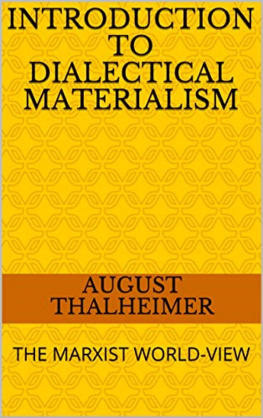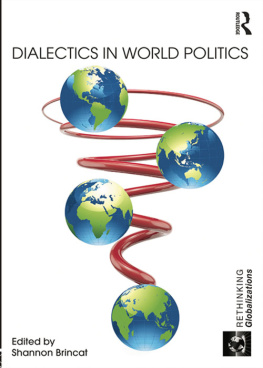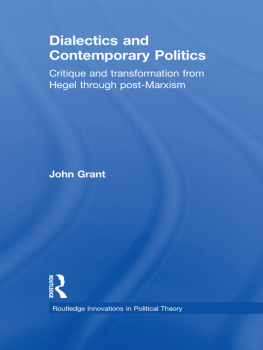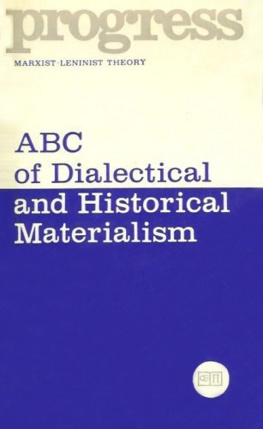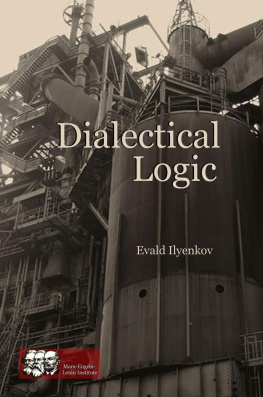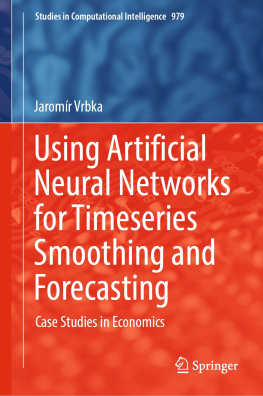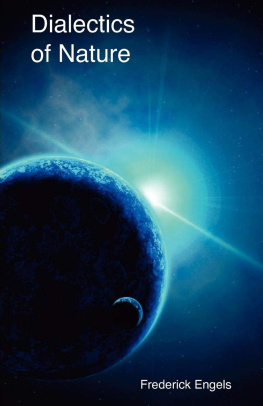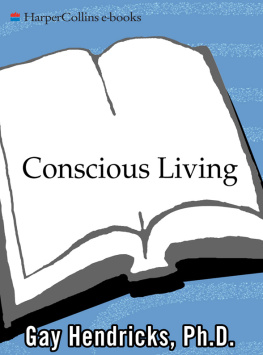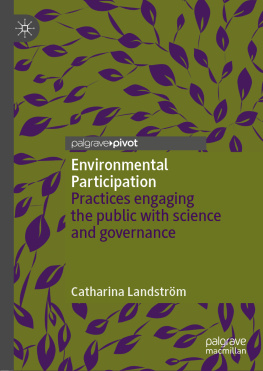Introduction to Dialectical Materialism
The Marxist World-View
August Thalheimer
https://www.marxists.org/archive/thalheimer/works/diamat/index.htm
Diversity of "modern" world-views. The unity of the natural sciences. The unity of dialectical materialism. Its opponents. The problem: Presentation of dialectical materialism in its historical development. Two basic trends in the modern world-view: the proletarian and the bourgeois. An intermediate trend: the petty-bourgeois, a variety of the bourgeois trend.
Outline of the lectures. Religion: the oldest of the world-views. Essential characteristic of religion. The religious and the natural-scientific explanations of natural phenomena. The chief sources of religion: 1. Relation of man to nature; 2. Social relations. The emergence of the priestly caste from the social division of labor; class structure. The erstwhile progressive role of the priesthood.
The development of religion and its relation to the forms of production and of society. Local, tribal, national gods. Christianity as a world-religion. Early Christianity: the religion of slaves and oppressed nations. Feudal Christianity. Religion in capitalist society and its class bases. Social anarchy of capitalism. Religiosity, wars, and revolutions. The revolutionary bourgeoisie as opponents of religion and the church. Religion as a means of authority. Religion and the agricultural class. Religion and the modern working class.
Rationalist and historical-materialist position on religion. Anti-religious enlightenment as an accessory part of revolutionary preparation. Position of the Communist Party on religion. The Soviet Union and religion. Religion and fully developed socialist society. The "substitute" for religion. Development of the modern world-view. Its beginning in Greece. Prerequisites for the disintegration of religion and the development of philosophy and the natural sciences. Progress in the mastery of natural phenomena. Relation to the development of slave-economy. Greek natural philosophy and the development of the Greek commercial cities of Asia Minor. Tyrants, the people, and the city-nobility. Slave trade and slave-economy. Free artisans and wage-laborers. Thales of Miletus: the beginning of a materialistic explanation of the world. Water as the cosmic principle.
Anaximander. Matter as the starting-point of cosmic development. Heraclitus. The law of the universal development of things. The beginnings of dialectics. Difference between classic and modern concepts of development. Opposition to the notion of the immortality of individual souls. Heraclitus and the class-relations of his time. The people seek refuge in a religion of redemption. The theory of atoms: the most consistent product of ancient materialism. Idealistic turning-point.
Plato and Aristotle. Beginning of the decline of society based on slave-economy and the transition to idealism. Hindering of technical progress by slave-economy. Supremacy of the Idea and the supremacy of the "rational." Ancient, bourgeois, and proletarian democracy. Reactionary and progressive aspects of ancient idealistic philosophy.
A few facts about Plato and Aristotle. Athenian society and logico-scientific interests. The subject-matter of formal logic. Significance of formal logic for science. Two main laws of formal logic:
1. The law of identity; 2. The law of contradiction. Evidence for two main laws of formal logic. Proof of two main laws of logic from the standpoint of dialectics. The law of identity postulates the changelessness of things. Limited significance of the law of identity. Dialectical proof of the law of contradiction. Universality of contradiction as the expression of universal change. Examples. Meaningful and meaningless contradictions. Criterion of the actual change of things. Oppositive relation of formal logic and dialectics. Limited field of application of formal logic. Dialectics as the universal and exact comprehension of things in their motion and their interrelations. Materialistic and idealistic dialectics. Sources of dialectics in antiquity: 1. Heraciitus; 2. Socrates, Plato, Aristotle. Synthesis of two in modern dialectics: historical dialectics. An example: Marx's Capital. Dialectics of a totality of relations and its changes. Slave-labor and the limitations of ancient dialectics. The extension of dialectics to complete universality in materialistic form and its social conditions.
Elements of materialism in the East as a point of departure for dialectical materialism. The religious crisis of the epic period. Brahman priesthood. Social relations in the Vedic period. Emergence of class-oppositions in the primitive communist village communities. Emergence of great landed estates and slave trade. The Sudras. Sharpened class-oppositions in the North-east. Class relations in the sixth century. The social upheaval and the religious crisis. Great merchants as bearers of materialism. The castes. The four main castes. Caste-structure and basic problems of Indian thought. 1. The cycle of regeneration: Sansara. Caste-structure and ideas on regeneration in ancient Egypt. 2. Karma. Buddhism as a rebellion within the bounds of religion against castes and priestly supremacy. Upheavals in primitive Buddhism. Its qualification as a world-religion. Indian materialism as the most radical critic of Brahmanism. Lokayata or the theory of laymen. The main tenets of Indian materialism.
Characteristic of scholasticism of European Middle Ages. Transition from feudal to bourgeois development. The Reformation.
Main purpose and substance of bourgeois philosophy. Criticism of Christianity and of religion in general. Making way for the development of the natural sciences. Peak of French materialism of the eighteenth century. Diderot. Helvetius. Voltaire. Rousseau. The religion of reason. German philosophy. Hegel as the pioneer of the bourgeois revolution. The rediscovery and further development of the dialectical method. Dialectics as the universal formula of resolution. Hegelian absolute or objective idealism. Hegel undermines religion from within.
The young Hegelians and the open break with the Christian religion. Ludwig Feuerbach. The Essence of Christianity. Transition from idealism to materialism. Overthrow of supersensual knowledge or metaphysics. The negative destruction of philosophy. Natural-science materialism and historical idealism. Feuerbach as the exponent of the radical, left bourgeoisie of his time.
Contributions and defects in Feuerbach. The sources of the dialectical materialism of Karl Marx and Friedrich Engels. The materialistic explanation of history and the destruction of religion and of philosophy. Materialistic dialectics as the positive outcome of the history of philosophy. Theory of knowledge: the independent existence of the external world. The idealistic conception. Consequences of the idealistic conception. The relation of being and non-being and self-consciousness. Subjective and objective ideas. The materiality of the external world. Thought and brain.
The infinite variety and the infinite unity of matter and its functions. The relation of thought to reality. The idealistic view. Thought as a special case of the universal interaction of things. The specificity of human sense-organs. The limitations of human sense-organs. Transcending the specificity and limitations of human sense-organs through thought. The criterion of truth. Note the absence of contradiction. Observation and research as the touchstone of truth. Is a complete or absolute knowledge of things possible? Dialectics and the special sciences. Mutual conditioning of dialectics and the special sciences. Are there innate ideas? The natural characteristics or functions of thought.

